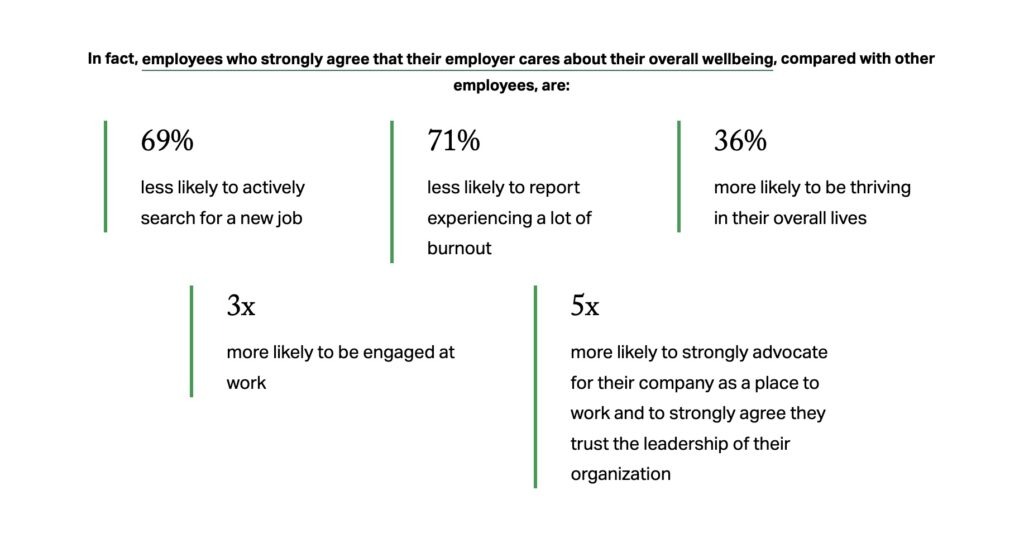Mentorloop Co-Founder and COO Heidi Holmes reflects on the uncertainty that currently surrounds the world of work, and why when it comes to how organisations design their people strategy, progress happens only for the bold.
I think one thing we can all agree on is that no one really knows what the future has in store. Uncertainty is fuelling a wait-and-see mentality for both employees and employers. Being a business owner, I appreciate the need for caution at times. Still, I’m also aware of how paralyzing that approach can be – not just in terms of growth, but also in terms of employee productivity and engagement. During times of uncertainty, there is always opportunity and it will be the bold and the brave who not only survive but thrive.
So with diminishing budgets, a fragmented workforce, and a contracting economy, HR leaders are going to be put under pressure by the C-suite to find savings without compromising on key people metrics around productivity, engagement, and retention – especially of top performers.

Let’s Talk Turkey
If we’re going to get ballsy in a depressed economy, we best get across the numbers.
So, let’s talk turkey.
We all know that turnover is expensive. But I always think it’s worthwhile revisiting and reminding ourselves of just how much. The cost of employee turnover can vary greatly depending on the size and industry of a company. But in general, the average cost of replacing an employee in Australia falls around $15,000 to $30,000. This includes the direct costs of recruiting and training a new employee, as well as the indirect costs of decreased productivity and morale among those who stay.
It is difficult to estimate the exact amount that Australian employers spend on training and development for their employees. It can vary greatly depending on the size and industry of a company. However, it is estimated that the average Australian employer spends around 1-2% of their payroll on employee training and development. According to the Australian government’s Job Outlook website, the average cost of training per employee can range from $500 to $5,000 or more, depending on the type and duration of the training.
Workplace Trends for 2023
At the start of every year, it’s every software company’s job to predict the trends of the year and align that back to what they sell. And look, at Mentorloop we do the same! As my co-founder & CEO of Mentorloop explains, some of the themes we saw emerge from the pandemic around the challenges of hybrid working and creating a sense of belonging will continue to be the drivers of delivering a people strategy endorsed by the top brass.
However, the best People Leaders and companies will also be looking at these five things:
Employee Wellness and Mental Health Support
Companies will continue to seek to improve the general health and well-being of their employees. Moving forward, we can expect employee wellness programs to become increasingly important.
A contributor to this is that we now know that high well-being in the workplace is beneficial to organisations as it’s a key contributor to retention and engagement. Not only that, but research has shown that FTSE 100 companies that prioritize employee engagement and well-being outperform the rest of the FTSE 100 by 10%.

And as mental health becomes an increasingly important issue in the workplace, companies will increasingly prioritize mental health support. In 2023 and beyond, psychological safety will be the focus, particularly for managers and how they create a culture of trust and openness within their teams.
Artificial Intelligence and Automation
Artificial intelligence and automation are expected to continue to play a large role in the workplace, and companies will need to adapt in order to remain competitive. Companies will also need to be conscious of the potential for these AI tools to be seen as cost-cutting tools with the potential to replace jobs leading to lower morale and productivity.
On the other hand, using generative AI to accelerate personalized and applied learning, as well as allowing the use of these tools for employees to do their jobs more efficiently can be a welcome improvement. (Forbes) Smart employers will be responding to the rise of AI by ensuring their people are being trained in more than routine manual jobs and ensuring that they instead can use AI tools to make their jobs easier. For certain sectors of the workforce, this can also mean freeing them up to use their time for tasks that need higher-order thinking and human judgment or expertise.
Employee Development
Organisations across the board will continue to focus on developing the skills of their employees, as they seek to stay ahead of technological changes and industry trends. It’s also a smart recruitment and retention move (more on this later) as millennials continue to comprise more and more of the workforce (75% by 2025). They overwhelmingly, by a whopping 91%, view the potential for career progression as a top priority when choosing a job and 93% of millennials find skill development crucial to their career progression. However, 63% of millennials say their leadership skills are not being fully developed and less than 50% of Millennials say they’ve had opportunities at work to learn and grow within the past year.
In light of this, workplaces that prioritise employee development will have a massive advantage in the talent market. And, to the point above, it will be a smart play for companies to utilize AI tools to support and up-skill their employees.
Diversity, Equity, and Inclusion
Companies will continue to place a strong emphasis on DEI and work to create more inclusive and equitable workplaces. It’s no longer a trend, folks – it’s here to stay. Employees value it and are becoming more aware of shallow promises. They want action and they want improvement, particularly around gender equality and closing the pay gap.
Data tells us that a vast majority of workplaces in Australia value diversity, equity, and inclusion but many employers are failing to act on it. Today’s pool of talent increasingly values DEI and will often choose employers based on alignment with their personal values. Employers who get this right will have a massive leg up in recruitment in the coming years.
Retention and Engagement
US businesses lose close to 1 trillion dollars annually due to employee turnover as the cost to replace an employee can be up to 2x the employee’s salary. Coupled with the fact that 44% of millennials say if given the choice, they would like to leave their current employer in the next two years, it’s a recipe for disaster.
This is a complicated one as there’s a lot that goes into engaging employees, and therefore retaining them. So companies will need strong, multifaceted people strategies that include development initiatives, culture building, etc., to ensure employees become, and stay, engaged.
It’s a lot to cover. If only there was one proven people strategy to cover it all!
Mentoring is a proven initiative that helps deal with all of these and more! And if you go by what employees want – they by and large want mentoring.
So, Why Mentoring?
Mentoring is no fad. It has stood the test of time. Its benefits have been heralded in stories from legends of the past all the way to our modern-day heroes. And that’s because, at the heart of it, mentoring is about knowledge exchange and human connection.
But mentoring punches way above its weight because ‘knowledge exchange’ can basically intersect with any job to be done. Mentoring is also the perfect just-in-time people offering when using an always-on approach. Your people can engage with it whenever they need it.
Performance review coming up? Who’s someone I can chat with who isn’t my manager that can help me prepare?
Interested in moving to a different area of the company? Who’s someone I can connect with from that department?
These aren’t big things – but they are things that matter to your people. A mentoring program is truly one of the most inclusive people initiatives you can offer. It is literally relevant to all of us. Everyone might not be compelled to volunteer their time out in the community, and parental leave, while important, isn’t applicable to everyone. But mentoring? There’s always going to be a time that you’ll need it and you will always benefit from it. And while other initiatives can definitely contribute to a robust people-centric people strategy, mentoring is something that can amplify those other initiatives too.
But I can hear you asking, “How does this help us deal with the issues you mentioned earlier?” Well, let’s discuss that!
Employee Wellness and Mental Health Support
Mentoring is a powerful tool for enhancing employee wellness and mental health in the workplace. Mentors offer emotional support, stress management strategies, and guidance on career development – all helping employees navigate challenges and build resilience.
Mentoring relationships also help reduce employee isolation and loneliness, therefore helping to boost confidence and promote work-life balance. Mentoring also contributes to a culture that values well-being and fosters a sense of belonging among employees. This support not only benefits individuals but also creates a healthier and more inclusive workplace environment overall.
Artificial Intelligence and Automation
Mentoring serves as a pivotal resource for organizations navigating the transformative changes brought about by AI and automation. In this era of rapid technological advancement, employees often need to acquire new skills to remain competitive and relevant. Mentoring programs are vital in facilitating this skill development. This knowledge sharing not only expedites the integration of AI technologies but also ensures that employees comprehend their roles within this evolving landscape.
Mentors also offer invaluable emotional support and guidance during times of technological transition. The adoption of AI and automation can be a disruptive and unsettling process for employees. Mentoring relationships offer people reassurance, encouragement, and insights, helping individuals cope with the uncertainty and potential anxiety associated with these changes. This emotional support not only fosters a more resilient and adaptable workforce but also reduces resistance to these new technologies. What’s more, mentoring relationships can also encourage individuals to use AI to aid their personal learning and development journeys.
By promoting a culture of innovation, fostering continuous learning, and enhancing change management efforts, mentoring relationships enable organizations to not just cope with AI and automation but leverage these advancements to thrive in the ever-evolving digital landscape.
Employee Development
Mentoring is the cornerstone of effective employee development within the workplace, serving as a catalyst for both personal and professional growth. Mentoring relationships help cultivate and distribute a wealth of knowledge and experience within the workplace. This knowledge transfer not only enhances employees’ competence but also empowers them to tackle new challenges with confidence.
The tailored nature of mentoring also ensures that individuals receive targeted guidance, fostering skill development aligned with their roles, career aspirations, strengths, or even personalities. This personalized approach accelerates learning, allowing individuals to flourish and contribute meaningfully to their organizations.
Beyond skill development, mentoring nurtures career advancement and leadership development. Mentors are often adept at helping mentees chart their professional journey, setting clear goals, and identifying opportunities for growth. As mentees progress in their careers, the guidance and support received from mentors become invaluable assets, cultivating a pipeline of capable leaders who understand the organization’s culture and values.
In addition to these individual benefits, mentoring contributes to employee satisfaction by creating a supportive environment where individuals feel valued and invested in. In essence, mentoring is not just a mechanism for learning; it’s a powerful tool for building a thriving workplace culture and propelling organizations toward sustained success by investing in the development of their people.
Diversity, Equity, and Inclusion
We all know by now that mentoring plays a pivotal role in advancing diversity, equity, and inclusion (DEI) within the workplace. By fostering mentoring relationships that cross demographic boundaries, organizations promote a sense of belonging and equality among employees from various backgrounds through creating human connections. These mentorship connections break down barriers, offering opportunities for underrepresented individuals to access guidance and support from experienced mentors, which may otherwise be inaccessible. Through these relationships, people gain insights into diverse perspectives and experiences, fostering a more inclusive and empathetic work environment.
Moreover, mentoring programs can serve as a strategic DEI tool by identifying and nurturing diverse talent within the organization. By intentionally pairing mentors and mentees from different backgrounds, organizations can address biases and promote equitable career development. This not only enhances individual career prospects but also strengthens the overall diversity and inclusion initiatives, creating a workplace culture that values and celebrates differences. Ultimately, mentoring helps build bridges, break down stereotypes, and contribute to a more equitable and inclusive workplace where everyone has the opportunity to thrive.
Retention and Engagement
There are countless studies on how mentoring helps organizations engage and retain their people.
When employees have access to mentors who provide guidance, support, and opportunities for growth, they tend to feel more connected to their organization. This sense of connection is a fundamental driver of engagement, as it instils a feeling of belonging and commitment. Engaged employees are more likely to invest their energy and enthusiasm into their work, leading to higher productivity and better overall performance.
Likewise, employees who feel supported and valued through mentoring relationships are more likely to stay with their organizations for the long term. Mentorship can provide a sense of career progression and development, which are key factors in employee satisfaction. Additionally, mentors often play a vital role in helping mentees navigate challenges and overcome obstacles in their careers. This support not only contributes to employee growth but also demonstrates that the organization cares about their well-being. As a result, employees are more inclined to remain loyal to companies that invest in their professional and personal development through mentoring, ultimately reducing turnover and the associated costs of recruitment and training.
And If I Do Nothing?
Holding off, waiting, delaying – however you label it, it’s’ doing nothing. And doing nothing is dangerous.
This is a chance for competitors to do something to position themselves as a more attractive alternative. It also gives your employees a pretty big incentive to do nothing themselves. If they aren’t going to invest in me, why should I go to the extra effort? It’s all negative. It’s all bad. There’s no upside to doing nothing.
The world moves fast. As we saw with diversity, equity, and inclusion (DEI), what many thought of as a trend is now a bare minimum in many parts of the corporate world. The same will happen for holistic employee well-being.
Doing something is always better than doing nothing. The challenge moving forward will be doing more with less. People & Culture leaders, what you need now is something scalable that touches everyone but can be delivered at a low cost while having a measurable, tangible impact. This is something that your C-suite can comprehend. And let’s not forget about you – you need something that makes you and your team look like legends!
Watch this video for our tips on building a polite mentoring program that’s easy to scale:
All roads lead back to mentoring. And you might think, of course I always have to say that, but I truly think the results speak for themselves. Check out our 2022 Most Impactful Mentoring Program award winners. The diversity of companies, program types, and benefits really showcase just how a mentor program can be your winning people strategy with minimal investment and maximum impact.
The Thing About People Strategy is that it Should Be About Your People
One of the number one objections we get from potential customers is they don’t want another platform. And I get it, sometimes you can feel overwhelmed with all the different tools you need to learn and use. But I think this argument is becoming less relevant every year, especially for a social platform like Mentorloop where the inherent value is for your people, not just your people team.
Most good solutions make admin, coordinating, and reporting dramatically easier, find ways to be more user-friendly through good UI & UX, and are becoming less intrusive through integrations. The question about engaging another solution has now changed. It has gone from “Should I add another platform to my HR stack?” to “Which platform works the best for my team, program, and larger organisation?.” Besides, the heart of your people strategy shouldn’t be about this anyway. It should be about what initiatives will benefit your people the most and how you can best deliver them.
We first spoke about The Human Reconnection back in 2018. I can’t help but feel this needs to be the mission statement for every organisation that is committed to building a truly inclusive and people-centric workplace. It’s about going back to basics. I think the need to give everything a complex label or snazzy buzzword (like “quiet quitting”) is overcomplicating, and in some cases deflecting, what may be a simple problem to solve.
When I think about employee benefits or perks even in the context of Mentorloop, what I’ve learnt is that it becomes very difficult to ensure that these benefits are seen as of equal value across each individual team member. For example, we offer 3 days of paid volunteer leave at Mentorloop for every employee, but less than 5% of our team has utilised this benefit. As a Certified B Corporation, we offer this as part of our commitment to the community. But it’s actually redundant to Mentorloop at an individual level and not everyone values it the same way.
However, what I do believe is that people, whether early or later in their careers, will always value support and guidance. They may not always get it, but they will always value it. This is why your people strategy should first and foremost rest on giving people value beyond pay. Don’t get me wrong, pay is important, but the return on giving value beyond that is clear as day. Time and time again, study after study has proven that mentoring benefits employee retention, development, productivity, wellbeing, and many other aspects of people’s lives, even beyond work.
Additionally, many workers, especially high performers, are increasingly feeling undervalued by their employers. When they eventually choose to leave, they don’t want to settle for the same. They look for value in the form of pay, of course, but also in the form of development opportunities, things like good parental leave, and flexibility, among others. If you want to attract these people, your people strategy has to center around what they need, want, and find important.
Your people strategy should be about your people.
The great news for employers is that there’s an easy way to address this. You already have an abundance of a resource that can support your people’s development and well-being – mentors! All you have to do is make them accessible to everyone.




